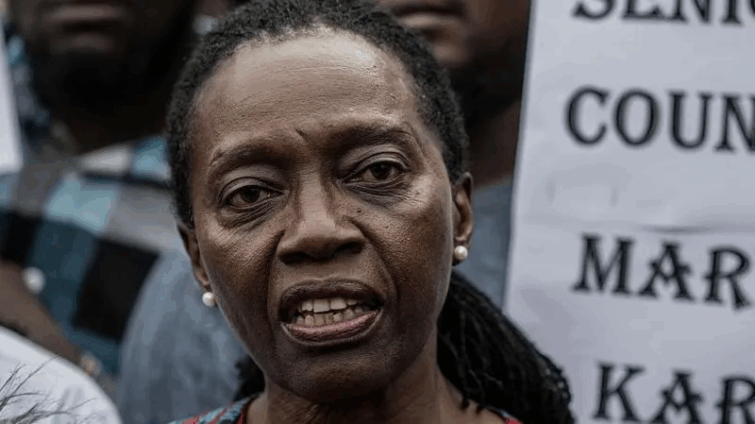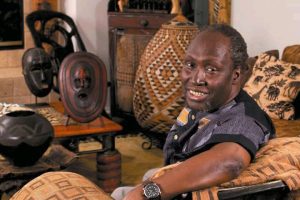Kenya’s former justice minister deported from Tanzania
3 min read
Martha Karua’s deportation from Tanzania sparks alarm over democracy and justice in East Africa.
Martha Karua, a prominent Kenyan lawyer, politician, and former justice minister, has claimed she was deported from Tanzania under controversial circumstances. Karua, who also ran for Kenya’s presidency in recent elections, had traveled to Tanzania to attend the high-profile treason trial of opposition leader Tundu Lissu, a move that Tanzanian authorities allegedly found objectionable.
According to Karua, she was detained and forcefully removed from the country without explanation or due process. The incident has sparked regional concern and drawn criticism from human rights groups and political observers, who view it as another sign of democratic backsliding in East Africa.
Tundu Lissu, the central figure in the trial Karua intended to observe, is a senior leader of the opposition party Chadema and one of the fiercest critics of Tanzanian President Samia Suluhu Hassan. Lissu has a long history of political activism and has survived multiple assassination attempts due to his outspoken views. The current charges against him—treason—are considered highly severe and could potentially lead to the death penalty if he is convicted.
Karua believes her deportation is indicative of the Tanzanian government’s intent to suppress dissent and avoid international scrutiny. “My removal is not just about me—it’s a signal that Tanzanian authorities do not welcome transparency, accountability, or justice,” Karua stated upon her return to Kenya. “What hope is there for a fair trial when even observers are not allowed in?”
Her comments resonate with the broader concerns about political repression in Tanzania. The Chadema party, led by Lissu, has already been disqualified from participating in the upcoming presidential and legislative elections scheduled for October. The reason cited for this disqualification was the party’s refusal to sign the official electoral code of conduct—an act the government framed as noncompliance but which critics say was a form of protest against a flawed and biased electoral process.
Karua expressed deep concern over what she described as a “total erosion of democratic principles” in Tanzania. She accused President Samia’s administration of continuing the authoritarian tactics of her predecessor, the late President John Magufuli, under whom opposition parties and civil liberties were severely restricted.
“This is not just a Tanzanian issue,” Karua emphasized. “It reflects a growing trend in East Africa where dissent is criminalized, judicial independence is compromised, and leaders manipulate democratic institutions to cling to power.”
Martha Karua has long been recognized as a vocal advocate for human rights, good governance, and the rule of law across Africa. Her presence at the trial was meant to draw international attention to Lissu’s case and the broader challenges facing opposition figures in Tanzania. However, her deportation now threatens to overshadow the trial itself and raise further questions about Tanzania’s commitment to justice.
Analysts have warned that the escalating political tensions in Tanzania could affect regional stability. The East African Community (EAC), of which both Kenya and Tanzania are members, has yet to issue a formal response to the incident. Civil society groups and international watchdogs have called on the Tanzanian government to allow legal observers and media to freely monitor the trial and electoral process.
Meanwhile, Lissu remains in legal limbo, facing grave charges and uncertain prospects. His supporters fear that the judicial process is being used as a political tool to silence opposition and pave the way for an uncontested election in October.
As pressure mounts, Karua has vowed not to remain silent. “I will continue to speak out for justice—not just in Kenya, but wherever democracy is under threat,” she said.





